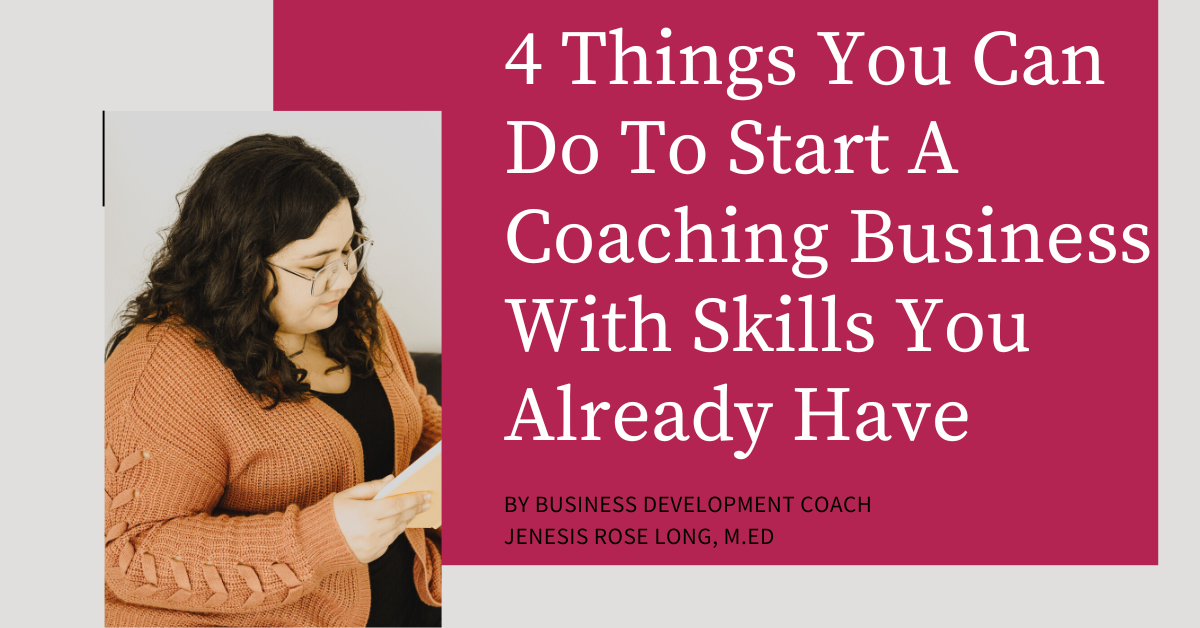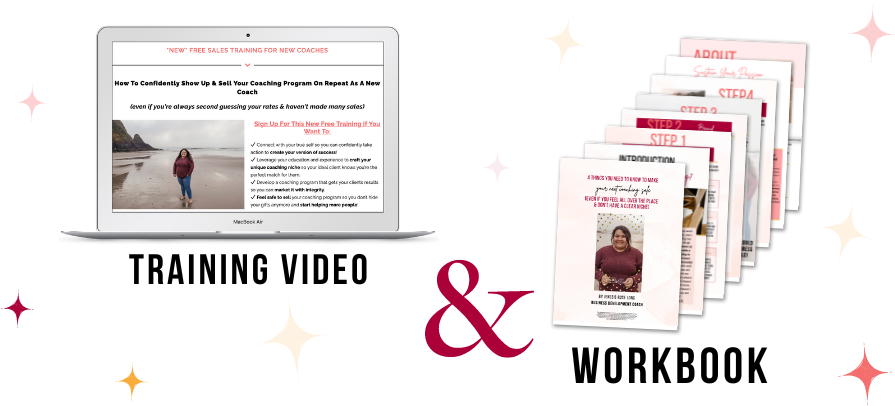Whether it’s the mindset blocks, the lack of clarity on who you can help, not knowing how to deliver results, or a fear of rejection there are a plethora of reasons that people choose to not follow their dreams and start a coaching business.
I’ve been helping coaches do just that for 5 years now and I can tell you I’ve heard every excuse in the book. Believe me, I get it! When I first decided to start a coaching business I had so much fear of the unknown. I didn’t want to put myself out there and risk my reputation, I didn’t want to make the financial commitment, I was afraid that if I put all this work in it might not pay off.
What if it didn’t have to be so scary? What if you had a framework for building confidence in yourself and your skills so you could start a coaching business?
That is exactly why I’m writing this blog! I’ve developed a framework over the years that I use to audit coaching businesses for growth. I think that if you follow this framework, you too will have the confidence to follow your dreams and start a coaching a business.
I’ve identified 4 key areas of any coaching business that will lead to success. The first and most important is…
Your Mindset
If you’re not in the right headspace then success is nearly impossible. What does this actually mean though? How do you develop a mindset that will lead to success?
Being in a mental place where you can tackle challenges and face any stumbling block with confidence is critical in the success of any coaching business. This doesn’t mean that everything will suddenly be easy to deal with! What it does mean is that you won’t let hiccups in your journey weigh you down until you can’t keep going.
The best way to build a healthy mindset is to focus on mindfulness. Practicing meditation, the simple act of focusing on and becoming aware of your breathing, for just 5 minutes a day every day will improve your focus. Being able to focus in times of stress allows you to prioritize tasks and work efficiently to solve any problem.
Another thing I like to do regularly is journal. Writing out your feelings, fears, stresses, successes, strengths, etc. helps to process emotions in a healthy way that allows you to be more present.
Confidence Building Exercise:
Once a week while you’re journaling I want you to make a list. Start with with some of the stumbling blocks you’ve encountered in the last week. Write out the tasks in your business that you don’t feel very confident doing.
Next write out the tasks that you CAN do but you don’t enjoy doing.
Next write out the tasks you enjoy doing but maybe aren’t the best at or are getting bored of.
Finally, write out the tasks that bring energy and drive and determination. The things that you wake up excited to do in the morning.
Look over your list and see the areas where you have strong competence and the areas you need to work on. Focus on finding ways to fit more of your competencies into your schedule to continue building excitement in your business. Additionally, find resources you can use to build your skills in other areas so that you can be more efficient at them (I.E. spend less time doing them) but also so they become more enjoyable to you.
Your Brand
Developing a brand probably seems like it will be really easy at first. The problem is, if you don’t know your clientele VERY well you can get stuck in the details that will drive your marketing messages to the wrong audiences. Spend every day thinking and meditating on who your ideal client is. Think about the need in their life that you are filling. Consider what the target demographic is that you want to work with. List out the interests of your ideal client. Do they like shopping? House Plants? Reading? Come up with a detailed list of what they spend their free time doing. And finally think of behaviors that they’re likely to engage with. Reading self help books, shopping, overworking.
Building a detailed understanding of who you’re trying to target with our products helps build and market those products in a way that they’ll attract the right client.
You can also check out my free workbook that will walk you through how to build a coaching niche that will attract the clients you want to work with HERE.
If you want a video walkthrough of this workbook then check out this workshop I hosted on it HERE.
Your Program
When you’re coaching it is important to have a program that walks your clients through the nitty gritty of how to achieve their goals. I like to call this a transformational program because it’s designed to take them from point A to point B in a transformation.
Look back over the list you made earlier about your strengths and find ones that you believe you could help people achieve their goals in. This way you can create programs that touch on work that excites you and fills you with energy for your business.
Think about where your clients will be before they meet you and where you want them to be when they finish, this is your transformation! Build a coaching program that will walk them through everything they need to achieve that goal.
If you want to learn more about developing a coaching program checkout my Program Development Bootcamp HERE.
Your Sales
If you do everything above this then you will have a product that will attract the right people to you. The final part is making the sale. If you’re like me then the word “sales” probably comes with a bias towards greasy car sales people whose only goal is to maximize profits. This bias worked against me for a long time in my business so I came up with my idea of “safe to sell”, an ethical framework for making sales.
If one of your blocks is making sales then this should be a priority for you to work through so you can achieve success in your business. Doing the things above will help you build confidence in your product as well as your ability to help people transform their lives.
One of the most important things you can do to help you get comfortable with sales is ask for support. Having a coach that can work you through your mindset blocks and help you feel comfortable on sales calls can make all the difference. Journaling every day and practicing mindfulness will help you feel comfortable to put yourself out there and face your fears.
Start A Coaching Business
I LOVE nerding out about best practices to create result-oriented programs, new ways to improve processes, and how to create meaningful experiences for those you serve as you scale your impact. I got a Masters of Education studying program development and curriculum strategies because I saw the importance of having a program you’re confident in so that you can sell yourself with ease.
If you want to talk more about how to start your coaching business, book a free Coaching Business Strategy Call.


